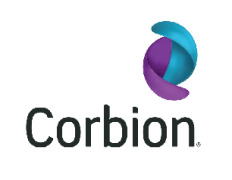News
Is algae oil about to go mainstream?
11 Oct 2018Algae oil boasts some impressive nutritional, environmental and functional benefits – and several companies appear to be on the verge of broadening its use. The question remains, will food manufacturers (and consumers) buy it?

Algae oil already enjoys a good degree of success. Varieties high in DHA omega-3 fatty acids are widely used in infant formula and supplements, as well as various foods for adults. A recent European ruling has expanded the permitted uses for algae oil in the EU, following notification from BASF, Nutraveris and Mara Renewables that they intend to market the oil as a novel food. This potentially could open the European algae oil market to more mainstream food and drink manufacturers. And in the United States, major supplier Corbion has announced that it will introduce its Thrive Algae Oil at 2,000 Walmart stores, adding to the 3,500 other major retail outlets at which it is available, including Target.
So far, the market for algae oil looks promising. According to Grand View Research, global sales could reach $2.09 billion by 2025, boosted in the food and drink sector by its antioxidant content and favourable fat profile, especially as a vegetarian source of omega-3s. However, it notes that relatively high production costs compared to commodity oils could limit uptake.
As an environmentally friendly choice, algae oil is far less reliant on limited natural resources like land and water, and outstrips all others in production per hectare. Palm oil is by far the most productive land-based vegetable oil, yielding about 5,590 litres per hectare, but algae oil from open ponds could yield as much as 95,000 litres of oil per hectare, according to a report prepared for the US Department of Energy. And unlike oils from palm and soy, algae oil has not been linked to habitat destruction, deforestation and workers’ rights violations.
Research suggests that sustainability claims are becoming increasingly important to consumers. Euromonitor International says ethical labels on global food and drink products were worth $794 billion in 2017 – $67 billion more than health and wellness claims.
As well as in open ponds, algae can also be grown in fermentation tanks. It can then be harvested in days, meaning it is easier to produce large quantities to order, independent from climate and local weather conditions.
From a functional perspective, algae oil has an unusually high smoke point, making it a good choice for deep frying. It has a neutral taste, which is useful for baking, frying and coating, and as an ingredient in dressings and margarines. In addition, it is vegan, non-allergenic, contains no trans fats and about 25% more monounsaturated fat and 75% less saturated fat than olive oil.
So, will the benefits of algae oil prove sufficient for long term market success? Consumer interest in alternative oils has spiked in recent years, driven by demand for healthier ingredients. Oils from nuts, avocado, sesame, flax, hemp and grape seed, as well as more novel sources like krill, and berries like sea buckthorn and juniper have all increased in popularity. For packaged foods, heat stability, biochemical profile and consistent taste are the most important considerations.
Algae oil’s production costs may still be a barrier, but if these can be overcome, its functionality, health profile, eco-credentials and regulatory status mean it holds enormous promise.
Related news

Our most-read articles of 2025
23 Dec 2025
From trade tariffs to heavy metals in protein, we look back at some of the industry’s highlights of 2025 and round up our most-read stories of the year.
Read more
Bigging up bean-based products and consumption in Britain
19 Dec 2025
Non-profit organisation the Food Foundation has launched a campaign, “Bang in Some Beans”, designed to increase UK consumers’ legume consumption.
Read more
Ingredient transparency key to success in European natural health market
12 Dec 2025
Europe’s $40.7 billion supplements market is growing fast, fuelled by demand for products that support healthy ageing, mental wellbeing, and preventive health, say experts.
Read more
Whole Foods Market forecasts fibre frenzy for 2026
11 Dec 2025
Whole Foods Market has released its top 2026 trends, predicting that a fibre frenzy will take place next year as health-conscious consumers seek out nutritious, filling options.
Read more
Sorghum emerges as better-for-you hero ingredient
9 Dec 2025
With the launch of Novak Djokovic’s sorghum-based brand, the grain’s popularity in the better-for-you snacking sphere is on the rise, thanks to its nutritional and sensory properties.
Read more
Innovation promise in 'maturing' plant-based dairy alternatives market
8 Dec 2025
Plant-based dairy is a maturing market that still faces significant hurdles around taste, functionality, nutrition, and price, but industry is innovating fast, according to experts speaking at Fi Europe.
Read more
Celebrating the winners of the Fi Europe Innovation Awards 2025
3 Dec 2025
Food industry stakeholders celebrated as the winners of the Fi Europe Innovation Awards were announced at a ceremony in Paris.
Read more
Apply now for the Vitafoods Europe Innovation Awards 2026!
28 Nov 2025
Entries for the Vitafoods Europe Innovation Awards 2026 are now open! Game-changing companies have until 27 February to submit their entry across eight categories for the chance to win big.
Read more
Concerns swirl around cinnamon’s compliance with EU law
25 Nov 2025
Cinnamon may be a top functional ingredient, but it needs stronger protocols to ensure it meets EU food safety laws and quality standards, say researchers.
Read more
Bone broth: From old-fashioned to en vogue
24 Nov 2025
OXO’s entry into bone broth has turned the spotlight on this small but high-performance category – and there is still scope for growth, especially in the area of GLP-1 support.
Read more


